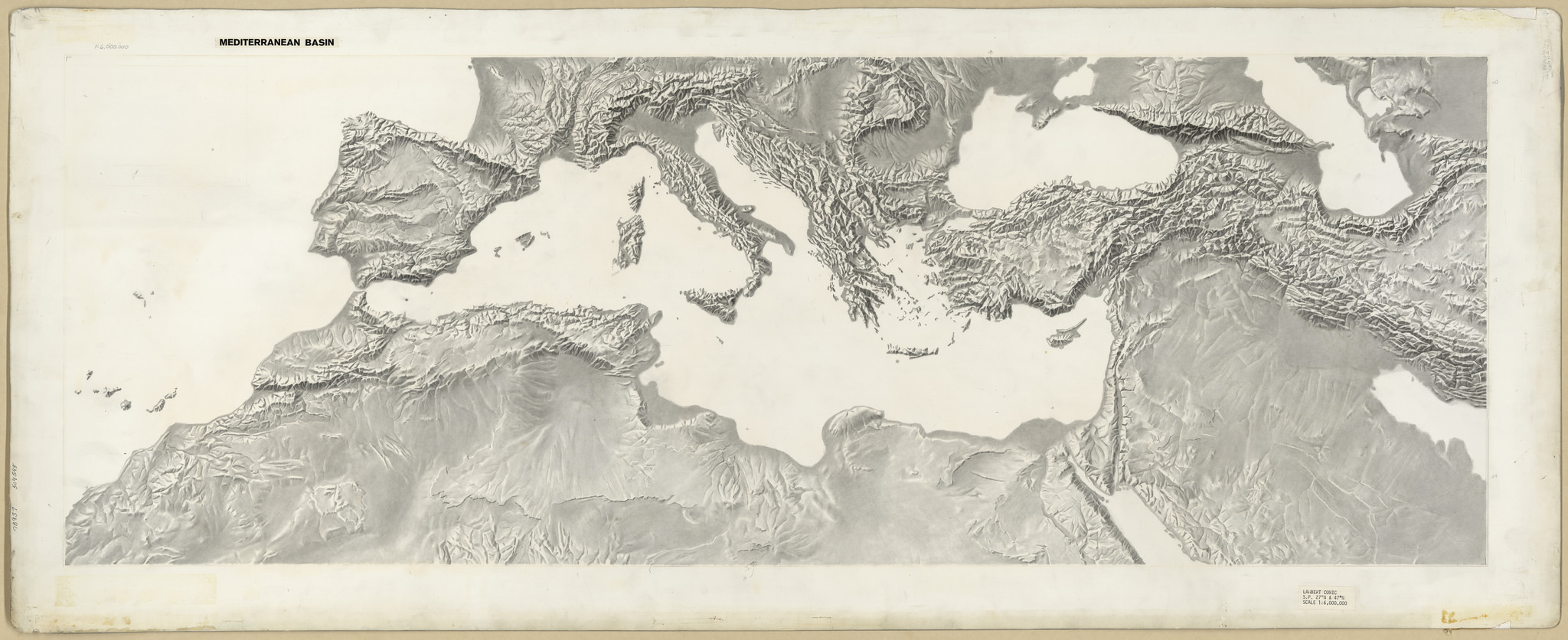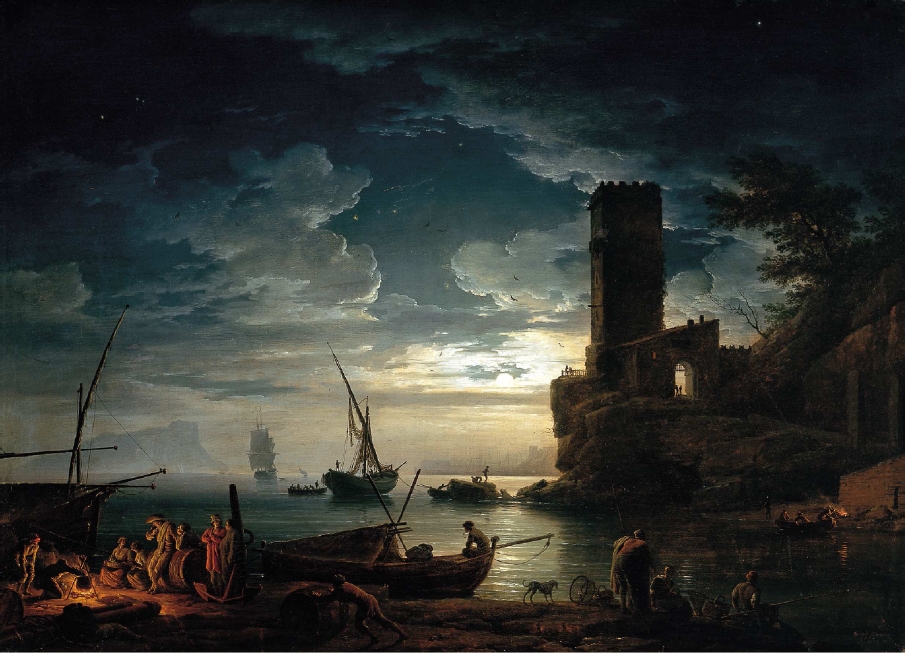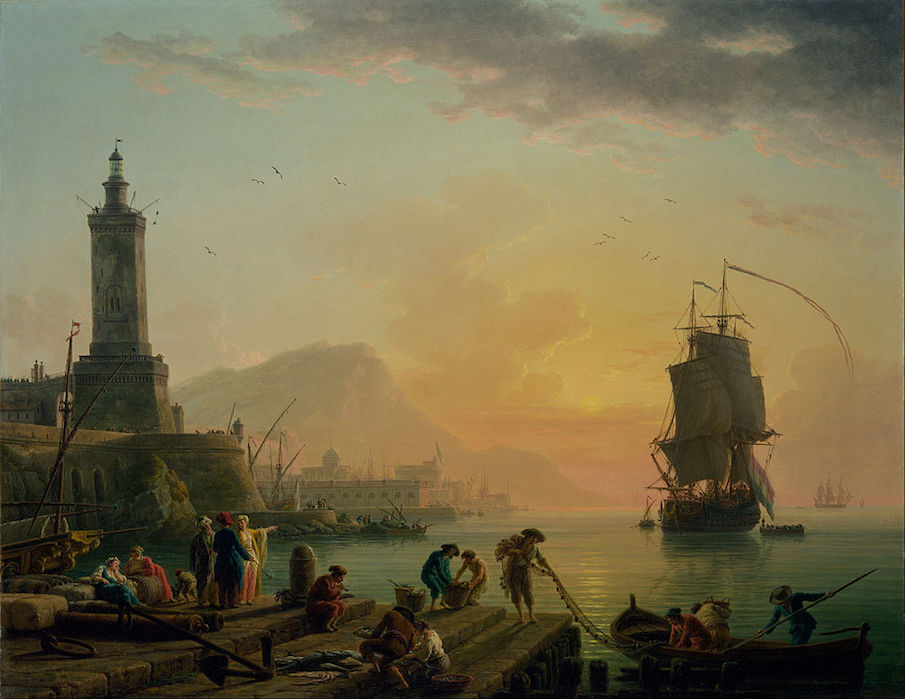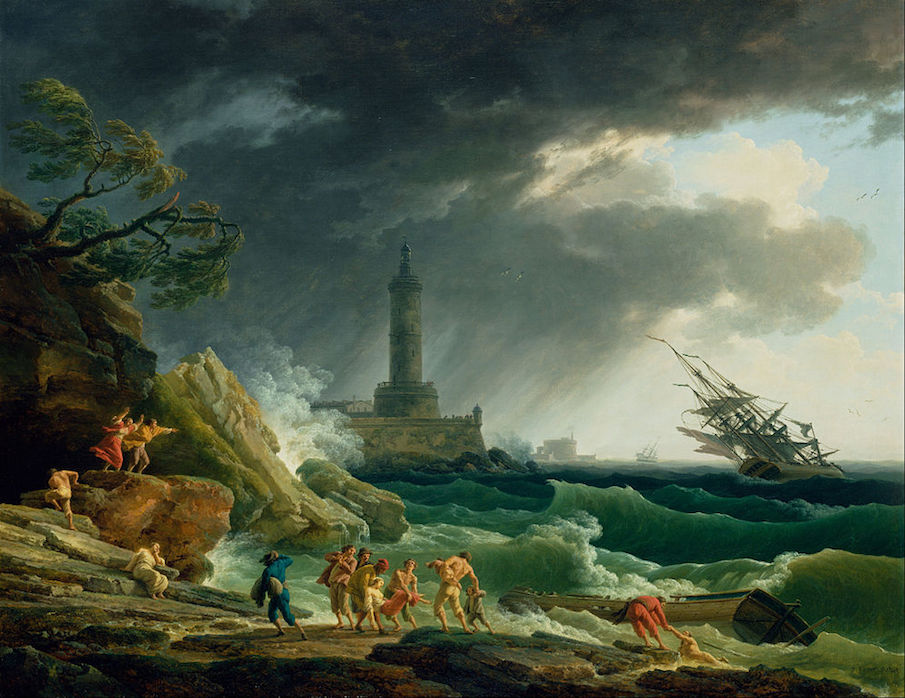The Mediterranean crush
Peter Harling
ولد البحر المتوسط جرّاء تصادم هائل بين الشمال والجنوب، عندما تداخلتِ الصفائح الأفريقية والعربية والأوروبية الآسيوية مع بعضها البعض في عملية بدأت منذ ملايين السنين وما زالت مستمرة حتى يومنا هذا. انبثقت جبالٌ، واندلعت براكين، وتشَكّلَ سهلٌ كان مقدراً له أن يصبح بوتقة للحضارات. لو كان باستطاعة الأوروبيين اليوم لردّوا تلاقيَ الصفائح التكتونية هذا على أعقابه، ولدفعوا القاراتِ القادمةَ نحوهم إلى الوراء، ولحوّلوا البحرَ الذي دار عالمُنا حوله يوماً ما إلى محيط.
لقد غدا البحر المتوسط، الحيّز الجغرافي الذي طالما ارتبط ارتباطاً وثيقاً بالكثير مما نعتز به نحن الأوروبيون ثقافياً - من أسس الفلسفة إلى الجوانب الأفضل للدين، مروراً بالنهضة الأوروبية والحركة الإنسانية التي تلت ذلك – مرتبطاً على نحو متزايد بالإرهاب والهجرة غير المرحب بها. إنّ القطيعة بين ضفتي البحر المتوسط تحفّز اِنزِواء أوروبا إلى نفسها، انزِواءً يتسم بجنون الارتياب، مدمّراً للذات ومفعماً بالأماني، فحينما تقوم مجتمعات أوروبا غيرُ المتجانسة بتضخيم الخوف من الآخر، فإنها بذلك تزرع بذور انعدام الثقة فيما بينها وفي داخلها، وكلما ازداد انغلاق أوروبا على نفسها كردٍّ على تفتت العالَم العربي، بدا أنها تتفكك على طول خطوط الصدع التي لا تعدّ ولا تحصى.
إنّ إعادة إحياء التلاقح الحضاري المتبادل الذي ازدهر منذ زمن على ضفتي هذا البحر، ذاك الحيّز المتكامل بطبيعته، هي المفتاح لتجديد أشكال الدينامية التي تتملص منا اليوم. البحر المتوسط بحرٌ غادر بقدر ما هو كريم، ففيه تمتزج العواصف الهوجاء بوعود براقة بالازدهار، لكننا نخاطر اليوم بتحويله إلى منطقة معزولة عالقة بين أوروبا التي ينخرها الركود والعالَمِ العربيّ الآخذِ بالانصهار؛ ولإعادته إلى ما كان عليه يوماً ما– أي كمصدرٍ مفعم بالحياة - علينا أن نفهم إلى أي مدىً تظلّ الضفتان مترابطتين، وكيف تردّد إحداهما أصداء أزمة الأخرى وتفاقمها، وكيف يمكن تخفيف هذه الارتدادات السلبية. ليس بإمكان الشمال "إنقاذ" الجنوب، ولكنهما يستطيعان تبادل العون والإثراء.
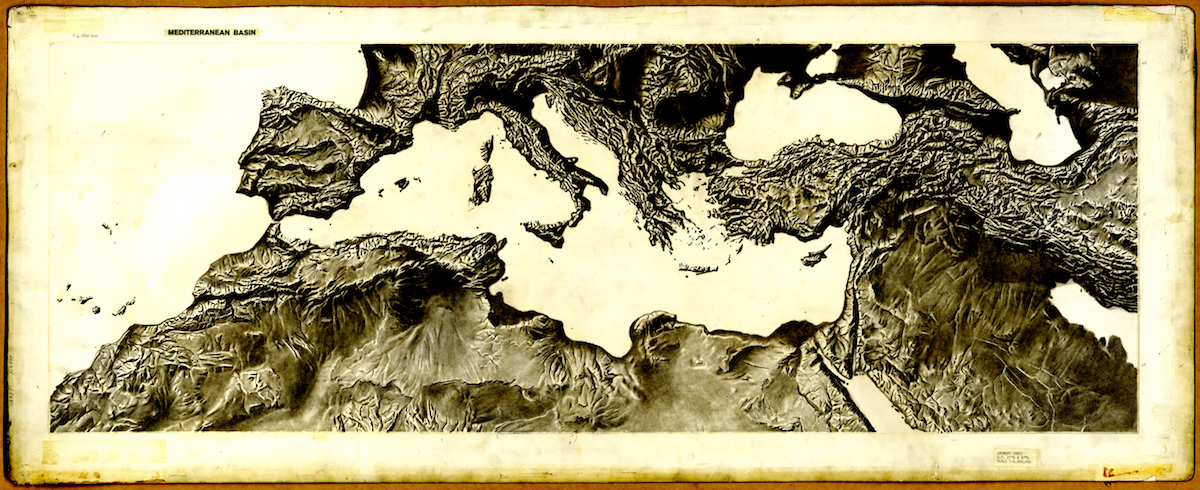
تشكّل الثورة
في ظاهر الأمر، لا يمكن للاختلاف بين ضفتي البحر المتوسط أن يبدوَ أكثر جلاءً مما هو عليه الآن، فغالباً ما ينُظر إلى الضفة الشمالية كضفة تضمّ دولاً ديمقراطية قائمة على إعادة توزيع الثروة، وعلى اقتصادات متنوعة وشعب علمانيّ؛ أمّا الجنوبية، فغالباً ما يُنظر إليها على أنها موطنٌ لمجتمعات محافظة تحكمها أنظمةٌ فاسدة تنهب مواردها وثرواتها. يؤدي النقاش الدائر على أسس من هذا القبيل إلى طرح أسئلة يمكن التنبؤ بها: هل الديمقراطية شرط مسبق للتنمية الاقتصادية والاجتماعية، أم أن العكس هو الصحيح؟ هل يجب أن تطغى حقوق الإنسان على المخاوف الأمنية أمِ العكس؟ وهل يمكن أن يتعايش الإسلام مع الحداثة؟
ومهما بدت هذه التساؤلات حديثةً في سياق "الحرب على الإرهاب" الحالية، غير أنها قيدُ التداول منذ الحقبة الاستعمارية التي اتّسم فيها تعامل الشمال مع الجنوب بالتعالي؛ تعالٍ لا يزال ظاهراً حتى يومنا هذا. يبدو أنه لا يزال يتعين على الشمال تهدئة الجنوب، المكانِ القريبِ جغرافياً والبعيد ثقافياً، من خلال اكتشاف الجرعة الصحيحة من التنوير والإخضاع الذي يناسب حقائق الجنوب الغريبة. لقد نبعت مشاكلنا من "فجوة التنمية" التي حصلت في القرنين الثامن عشر والتاسع عشر عندما شهدت أوروبا نهضتها وثوراتِها، بينما كان العالم العربيّ يغرق في الرمال المتحركة التي رافقت أفول الحقبة العثمانية.
لكنّ هذه الفكرة هي كليشيهات أكثر من كونها حقيقة تاريخية، وتتجاهل العلاقة الوطيدة بين ضفتي المتوسط عبر القرون. صحيحٌ أنّ العالَم العربيّ، الذي ولّد حضاراتٍ مفعمةً بالحيوية قبل وبعد ذروة العصرين اليوناني والروماني، قد شهد فترة طويلة من الانحدار إبّان العصر الذهبي للخلافة العباسية، غير أنّ الأمر لم يستغرق أكثر من غزو نابليون قصير الأجل لمصر، في أواخر القرن الثامن عشر، حتى انتشرت أنماط الحكم الحديثةُ في جميع أنحاء الشرق الأوسط وشمال إفريقيا؛ كما أدتِ الإصلاحاتُ العثمانيةُ العظيمةُ في النصف الأول من القرن التاسع عشر؛ والتي استوحيت من التحولات في أوروبا؛ إلى زوال الهياكل الإقطاعية المتجذرة، ما تسبّب في حدوث تحولات اجتماعية ما زالت ارتداداتها المتسلسلة ملموسة إلى يومنا هذا، يُضاف إلى ذلك انتشار القومية ذات النمط الأوروبي من خلال المدارس الفكرية التي رافقت النهضة العربية في أواخر القرن التاسع عشر.
أصبح التناغمُ بين الضفتين أكثرَ وضوحاً في القرن العشرين عندما وجد كلٌ من الشمال والجنوب على حدٍ سواء نفسيهما غارقَين في الخراب الذي تسببت به الحروبُ العالميةُ، وزوالُ الاستعمار، وصعودُ الإيديولوجيات الاشتراكية والقومية؛ كما سعى كلاهما، بنجاح متفاوت، وراء رؤى دول الرفاه والتحرر التكنولوجي والتوحيد القارّي، وقد تعثرا معاً خلال التباطؤِ الاقتصادي في الثمانينات، وصعودِ السياسات التي تفتقر لأهداف واضحة، وأزماتِ الهوية التي أعقبت نهاية الحرب الباردة وثورةَ المعلومات.
There are three, more helpful factors that shed light on the current state of the Arab world. The first is time. Over the past couple of centuries, North and South have followed parallel itineraries, but the Arab world’s journey was in fast-forward. The same dynamics, ideas and structures that took root in Europe stayed closer to the surface. The rural exodus occurred with little urban planning to absorb it. The middle-class was largely manufactured by regimes sucking their society into their expansive bureaucracy. And education was “democratized” in a haste, to serve statist economies and crude indoctrination. In other words, the Arab world underwent spectacular change, very much along the same lines as Europe, but it never had a chance to sediment and cement itself.
The second is the sheer magnitude of nefarious foreign meddling, stirring the region in ways that guaranteed it couldn’t settle. Across the region, the interplay of great powers has nurtured a profound sense of powerlessness. Among the most damning and disruptive episodes of interference was the externalization of Europe’s own antisemitism, or so-called “Jewish question,” through the creation of Israel. The ensuing conflict, along with the spread of Cold War rivalries and, more recently, the war on terrorism, has provided Arab leaders with endless distractions and justifications from their domestic failures, sparing them critical forms of accountability. The political and economic development the 20th century had been pregnant with aborted largely for this reason.
The third factor to consider is the preference usually given to suppressing Arab societies, which Europeans misunderstand and fear, to the point of wanting them restrained by whatever madcap regime happens to rule them. This tendency to patronize the Southern shore has in time been internalized by large swaths of Arab societies themselves, quick to agree that they are not ready for change, especially in the form of political participation, likely as it is to bring pent-up divisions to the surface. The 2011 uprisings upturned this penchant briefly, only to see it reinstated more forcefully still.
The uprisings represent precisely the price to pay for containment
The current explosion of violence in the Arab world thus pits fluid and self-doubting societies against an enormous backlog of problems left unaddressed for lack of political expression, regimes pared back to their hard core of cynicism, and outside players oscillating between harmful interference and a taste for the worst kind of status quo. Increasingly, short-term “stability,” even at prohibitive future costs, trumps all other considerations. Although the uprisings represent, precisely, the price to pay for previous decades of containment, Europe is back to pinning hopes on regimes that are time-bombs.

Europe in the Mediterranean mirror
While these divergences between the two sides of the Mediterranean are stark, the North and South retain much more in common than either tends to recognize. Indeed, both are swept by global trends, albeit with distinct manifestations. Many of the challenges Europe finds itself grappling with are all too familiar to Arabs. The educational system is in dire need of reinvention. Traditional family models are under stress. Economic stagnation is compounded by the disruptive impact of “globalization.” While welfare states devolve into austerity, political elites seem to offer nothing more than new styles, old ideas, and growing mediocrity.
Interestingly, the breakdown of the European unification drive, in everything but bureaucratization, belatedly echoes the painful demise of Pan-Arabism. Perhaps the most fascinating parallel spanning the Mediterranean, making it distinct in the world’s current landscape, is that the crises on both shores are a consequence of inertia, erosion and self-doubt more than transformation per se.
In Europe, little has changed, fundamentally, since the general slowdown of the 1980s, although the “crisis,” perceived at the time as transient, is now existential. It is a crisis of meaning, whereby broad segments of society appear to have lost any sense of collective identity. Take a random French person, asked in 1987 to answer such a question as “what is France?” He or she certainly would have struggled to offer a coherent definition, but would have been convinced that the answer existed as an elusive absolute. Today, the same riddle spurs an anxious frenzy: during presidential elections in 2017, French media rushed to “rediscover” a country that they assumed was transformed. They did not find much, for a simple reason: most significant changes—secularization, the spread of education, urbanization, the discovery of “immigration” as a problem, social security, women’s empowerment, or sexual liberation—happened before the current crisis kicked in.
Not unlike the Arab world, Europe comes across, generally speaking, as an introverted, depressive continent, obsessing about its past and present to the point of neglecting the massive assets that could help it project into the future. This dominant state of mind is not accidental, of course. Most, if not all, European frames of reference have received a battering: the nuclear family, the omnipotent state, the supposed supremacy of “the West,” and even the ideology of progress in its various avatars—such as the power to control nature, a vision of meritocratic social mobility, and a trusting faith in science.
Such deconstruction has largely been powered by economic motors, which dismantled old social frameworks and failed to replace them with anything new. Deindustrialization did not give rise to credible alternatives, just as cutting back on state expenditure offered no quid pro quo. Meanwhile, the hyperbolic enrichment of the elites has only highlighted their growing uselessness. Real estate has become such a “refuge” for the haves as to make actual housing unaffordable for the have-nots. Facing such challenges, the youth are pushed to compete over diplomas, although careers remain ever more difficult to kick-start and see through. In a context of broad-based pauperization, scapegoating minorities, doubting core values, fantasizing the rise of decisive leadership, or fearing a return to war, are in order. It bears emphasizing, yet again, how closely this predicament mirrors the Arab world.
Europe comes across as an introverted, depressive continent
The prevailing sense of impasse has very encouraging consequences too, unleashing imaginaries and desires, instincts of recreation, and risky but fertile forms of experimentation. In Europe, great electoral swings have brought to light astonishingly stark alternatives, as if the public instinctively sought, for better or worse, to pry clear-cut options from confused politicians. Innovations are at work in a revival of dissident publication platforms, and tentative forms of social protest. Consumer routines are exploring new economic and ecological patterns of behavior. Even something apparently banal like the spread of crowdfunding is an intriguing answer to shrinking state subsidies and social security. As is the case in the Arab world, the generation now coming of age in Europe is both actively seeking reinvention and, gimmicks aside, largely left to its own devices in doing so.
Yet if the underlying trends reshaping both shores are remarkably similar, their most visible manifestations could hardly be more different: Europe is largely sorting out its existential mess via electoral politics, while the Arab world is doing so through horrendous violence. Positive attempts at regeneration, in the South, have been muffled, excluded from the political realm and granted little space in the media sphere. Worse, they are being savagely repressed, disparagingly relabeled or opportunistically coopted by the same elites against whom the backlash was initially directed. Some have devolved into extreme brutality of their own, which in turn contributes to eclipsing the broader, constructively rebellious groundswell to which they belong. The fate of the Syrian upheaval is a heart-rending microcosm of this trend.
There is, in spite of all the waste, despair and bloodletting, an extraordinary, enduring vitality to the Arab uprisings, which must also be understood. Although the South is also undergoing a deconstruction of its collective frameworks, these are much more fluid than they are in the North, not least because processes of social, economic and political transformation never had a chance to sink in. Most people have experienced the “state” in more superficial ways. The rural exodus created hybrid forms of habitat and identity, stuck half-way between the village and the city. Education does not rest primarily on schools. Economies are largely informal. Genuine patriotic feelings do not exclude trans- and sub-national loyalties. Europeans, by contrast, are more rigidly wedded to robust, albeit failing structures.
The prevailing impasse has very encouraging consequences too
Such fluidity explains the chaotic and amazingly creative nature of the existential crises underway on the Southern bank of the Mediterranean. They are, in a word, “polysemic,” in the sense that they draw on multiple references and timeframes, all of which are both dilapidated and resilient: the traditional family, the tribe, the sect, the class, the corporation, the village, the city, the state, the clergy and so forth. Arab societies face a hodgepodge of broken building bricks, which they are free, so to speak, to assemble as they wish. Europeans stand to learn from this massive, tragic and seminal Lego experimentation.
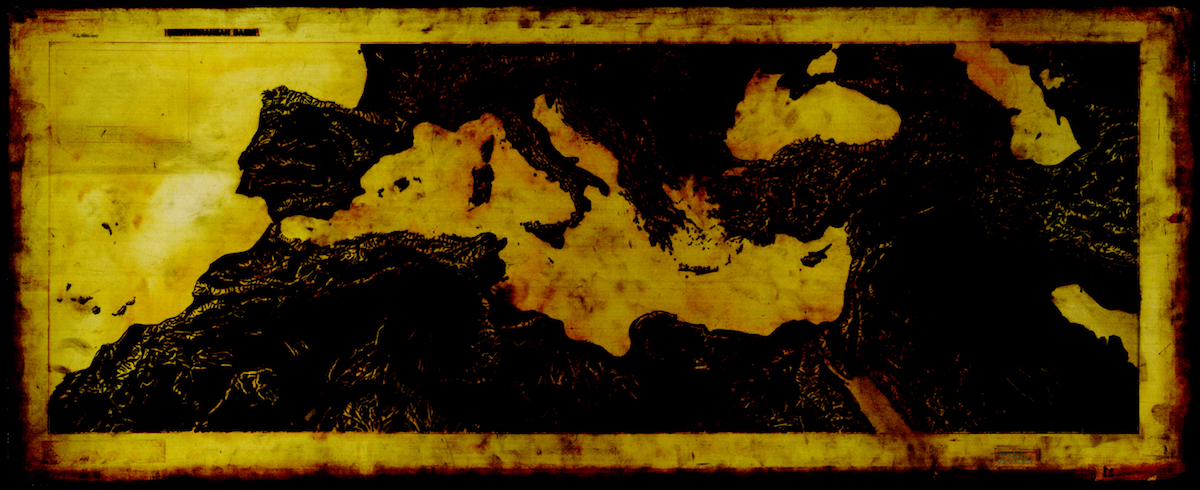
Talking past each other
For now, however, North and South generally remain fixated on sterile and stereotyped views of each other, in the absence of any meaningful dialogue. Perceptions are molded by imaginaries, themselves carried by simplifying journalism and alienating cultural products, such as blockbuster cinema. And clichés talk past each other. The Southern shore dreams of a Northern one defined by tolerant societies, benevolent economies and magnanimous governments far beyond those which Europeans actually enjoy.
Europeans, for their part, tend to imagine that they can purchase stability through investment in secular proxies promising to fight Jihadism and protect Christianity, failing to grasp the true drivers of instability and emigration: the growing insecurity, under-employment and absence of domestic horizon that bankrupt, repressive, and bigoted regimes guarantee will worsen. The region’s own Christians can serve as exhibit number one, as their estrangement and exodus started long before any Islamic threat or popular uprising.
The lack of human depth in relations across the Mediterranean comes from the fact that most engagement has crystalized, in recent decades, around natural resources and, more importantly still, security issues. The ensuing “sovereign” dialogue combines cooperation between secret services, largely symbolic peace processes, military alliances and arms sales. Increasingly, even humanitarian interventions respond to the overriding concern of pinning down victims in the vicinity of conflict, for fear of rising immigration. Development programs are slowly being revamped in connection to terrorism: supporting freedom of the press turns into countering Jihadi narratives, while education becomes a tool against radicalization, more than a fundamental right. Everywhere, reformist agendas are dispatched in the name of stability. Such securitization, inevitably, begets bunker-mentalities.Ordinary interactions are too sparse to underpin the needed dialogue
Meanwhile, ordinary interactions are too sparse to underpin a much-needed, people-to-people dialogue. Europeans are few to travel to the Arab world, and when they do are quickly cooped up in the relative comfort zones of guided tours and expatriate lifestyles. Arabs, in turn, are at the receiving end of highly polarizing migratory policies: those who obtain visas predominantly belong to globalized elites who blend into European societies seamlessly; others are condemned to illegal travel, which makes them either entirely invisible or, on the contrary, spectacularly conspicuous in vilifying or morbid ways. Descendants of immigrants don’t always lend a hand: some, torn in their identities, sport conflicting emotions about their original homeland, which doesn’t help outsiders develop serene views of their own.
Societies on both sides of the Mediterranean are thus left to engage with each other under the most horrendous set of circumstances: while existential crises deepen on either shore, raging wars, attacks on civilians and population movements seem to bind them together, at the expense of more humane connections. Such dynamics have created no shortage of regressive narratives and policies: Northern states have locked down their borders, dispensing with fundamental principles such as the right to asylum and the obligation to render assistance to those in distress at sea. Their Southern partners have naturally been keen to leverage the fear of terrorism and migration to extort money while continuing to abuse their own citizens in ways that only grow the problem.
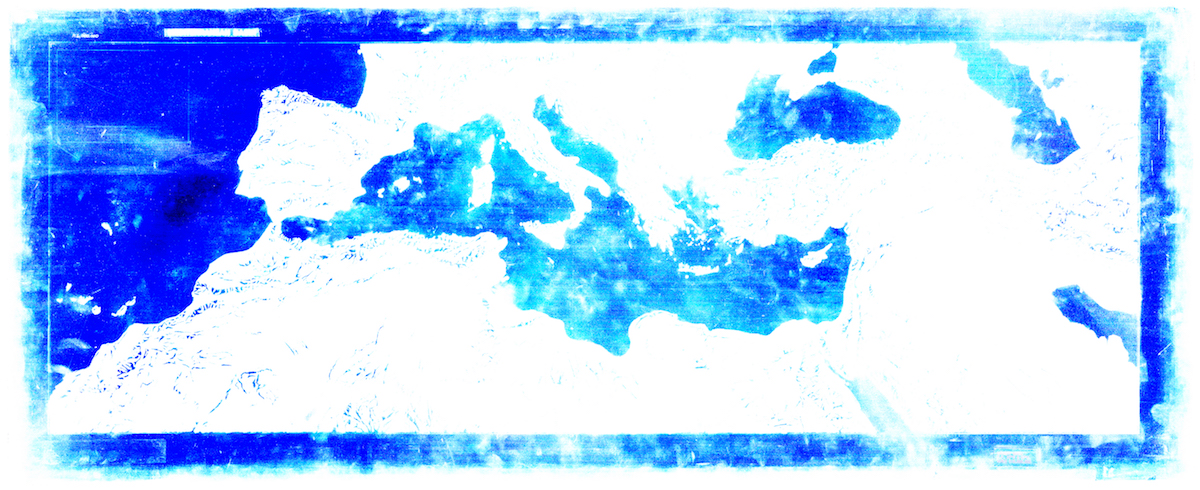
Message in a bottle
For all this unpleasantness, however, a kernel of optimism resides at the grassroots level, where individuals have yielded far more sophistication, wisdom, nuance, curiosity and patience than could reasonably be hoped for. The lower rungs of society have spawned small-scale but soul-saving forms of solidarity, ranging from hot meals dished out individually, to crowdfunded rescue operations in the Mediterranean. Although the temptation is palpable, ordinary people have not, to the extent one could fear, given in to the sirens of populism, even as politicians took the plunge, each in his or her way. A real appetite for more subtle and balanced information exists among broad segments of the public, despite the prevailing trend toward reductive, polarizing narratives.
The so-called refugee crisis, seen in this light, was a bitter but much needed wake-up call, having both increased the interface between the two shores and amplified the need for such grassroots solidarity. The movement of people was, in itself, negligible, at least in comparison to the hysterical response: a limited number of desperate migrants entered a vast, relatively prosperous space ridden with far bigger challenges. Disproportionate reactions triggered numerous positive and negative outcomes, which finally brought the Mediterranean back into focus, putting its Northern and Southern shores more squarely in front of each other. In the North, the uprisings down South suddenly became more real, raising serious dilemmas about what kind of place Europe wishes itself to be. The Arab world, for its part, discovered the existence of a European crisis, which it was too absorbed in its own existential turmoil to be aware of.
In this encounter, governments have been remarkably absent, focused as they are on the need to reinforce their borders to contain the problem. The most vocal elites have done little more than spew their anxiety, going as far as to forecast a civil war or the end of a European identity. This did not stop societies across the Mediterranean from catching each other’s eye. Physical barriers hardened, but at least some filters were shed. And a more hopeful imaginary may yet be unleashed.
All told, the Mediterranean is an inner sea, which for centuries heaved in a respiration of sorts, inhaling and exhaling ideas and influences from one shore to the other. Today, its vitality is in decline, if not under mortal threat. It is an expanse of water European authorities would almost like to cordon off, with repressive regimes lining its Southern coast, internment camps on its Northern one, and warships patrolling in between. Europe, which has a knack for growing superfluous institutions, was tellingly quick to let the Union for the Mediterranean, created half-heartedly in 2008, wither into oblivion, severing the sole forward-looking, institutional lifeline tethering one shore to the other.
The so-called refugee crisis was a welcome wake-up call
In any event, the challenge we face, today, consists not in building bureaucratic ties, but in rediscovering this naturally integrated expanse in all its age-old obviousness. Our current disaffection is, in fact, a surprisingly recent development by historical standards. Between the antiquity and the mid-twentieth century, commerce, conquests and cultural exchanges were the norm: to take but one, well-known example, the European renaissance revived Greek and Latin classics thanks to their preservation, translation and intellectual extensions in the Arab world.
It was the second half of the 20th century that saw an anomaly develop, when Europe for the first time turned its back on the Mediterranean. As it emerged from the colonial era and a devastating world war, it looked virtually anywhere else. It gazed inward, both in a necessary soul-searching exercise, and with a view to rebuilding nation-states and unifying the continent. It glanced out to America, a reassuring or overbearing anchor, and to Russia, an object of fascination or a looming threat. It eyed globalized trade opportunities. It gazed at the stars, and a new cosmic frontier. It cared for Boat People, or victims of the Ethiopian famine. If exotic foreigners worried it at all, it fantasized about a revived yellow peril. Europe came to conceive of the Arab world less as its neighborhood than as a distant piece on a geopolitical chessboard, now dominated by powers greater than itself.
But Europe and the Arab world are too close to be able to ignore each other for long. Today, reinvesting in the Mediterranean must find creative avenues, if we are to break with a vicious circle of mutually-reinforcing crises. A starting-point would be to understand, and accept, that the Arab world is undergoing a revolutionary process, not unlike the one that swept across Europe as of the late 18th century, unfolding throughout following decades. Indeed, Europeans strangely forget to what extent the social, economic and political transformations they take pride in were unhurried, costly in lives and replete with failures, recoveries, relapses and rebounds. It would be naïve to think that policies currently pursued to manage upheavals of similar magnitude in the Arab world, by endorsing this regime or bombing that city, are anything but futile.
It is no secret that Arab demographics have given rise to a bulging, disempowered youth shackled under some of the world’s most backward-looking and antiquated regimes. European governments would be well advised to relinquish the notion of propping up the generation in power for fear of being swarmed by its offspring. The only sensible path forward is to seek out ways of producing opportunities for them at home. This would entail an entirely different dialogue with their purported “partners,” less centered around security, and far more focused on redressing rampant corruption, failing education and broken business environments.
Foreign policy likely will remain shortsighted, but nothing compels us, citizens, to rush. Neither side of the Mediterranean will emerge quickly from its predicament. What we must do, for now, is try to grasp just how the two shores echo each other, through dynamics that bring us closer than we assume. Talking to refugees, engaging with the impressive cultural production emanating from the Arab world, delving back into history, or harnessing tourism to reclaim a Mediterranean identity, are but some of the many, individual initiatives that we can take in that direction. Small positives have huge potential to add up. NGOs rescuing drowning migrants do more than spare a few lives: they make real progress toward saving the European soul.
Empathy is an act of generosity as much as self-preservation
Empathy is an act of generosity as much as self-preservation. In tragic ways, the Arab world is a laboratory of change under extreme conditions, with a host of portentous global trends unfolding in violent, accelerated fashion: the degradation of power; the securitization of politics; unhinged predatory economics; the impact of climate change; the dismantling of social structures; and consequent nihilism. All are wreaking havoc across the Mediterranean’s Southern shore even as they creep more subtly across its Northern one.
In a struggle that concerns us eminently, the Arab world has also taken the lead in manifold, positive forms of reinvention, both big and small, when it comes to dissidence, artistic expression, monetary circuits, and technological hacks. Whether it wants it or not, Europe will encounter the effects of this Arab revolution, for better or worse. It is already facing the worst. Now let us look out for the better.
10 July 2017
Peter Harling is the founder and director of Synaps.
Illustration credit: author’s adaptation of the Central Intelligence Agency’s 1950s Mediterranean Basin Terrain map; artwork by Claude-Joseph Vernet / licensed by CC.
